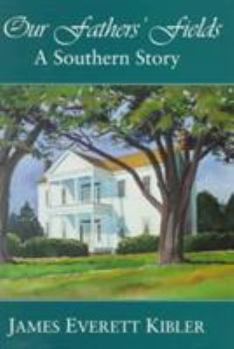Our Father's Fields: A Southern Story
Select Format
Select Condition 
Book Overview
The remarkable saga of a southern family in pusuit of the agrarian ideal
When James Everett Kibler purchased a dilapidated South Carolina plantation in 1989, he had no idea that his rehabilitation of the distinguished but deteriorated property would include the unearthing of an incredible tale of the land and the people who had lived on it. But as he refurbished the Great House and restored its nineteenth-century garden, he felt the pull of the place to uncover and record its past. Kibler faithfully took part in an act of cultural reclamation, piecing together the story of the Hardy family, who purchased the tract along the Tyger River in 1786 and farmed it for two centuries. Part epic, part history, part memoir, the resulting tale is a comprehensive, ambitious, and eminently readable chronicle that spans six generations of a family.
Compared by critics to the writings of Wendell Berry and James Agee, this richly detailed narrative brings to life such unforgettable characters as Squire William and his wife Catherine, the plantation's master and mistress during the turbulent Civil War era; their son Captain Dick, a Confederate soldier who served five terms in the state legislature; and their irascible grandson Frank, who labored desperately to keep the farm operating in the new century. Our Fathers' Fields offers an especially vivid portrayal of the antebellum South, a compelling collection of Civil War letters, and a poignant account of life after the war.
Interwoven with these absorbing life stories is the close examination of a plantation that grew from 204 to 2,035 acres and became one of the most valuable farms in the South. Kibler explores the natural history of the place, including its sophisticated formal gardens and its once staggering array of animals and native plants-many of which have all but vanished from Southern soil. Recounting his own efforts to recapture the plantation's former glory and the rewards of a life lived close to the land, Kibler concludes that only by knowing a place truly well--its past and its present--can we guard against its abuse.





